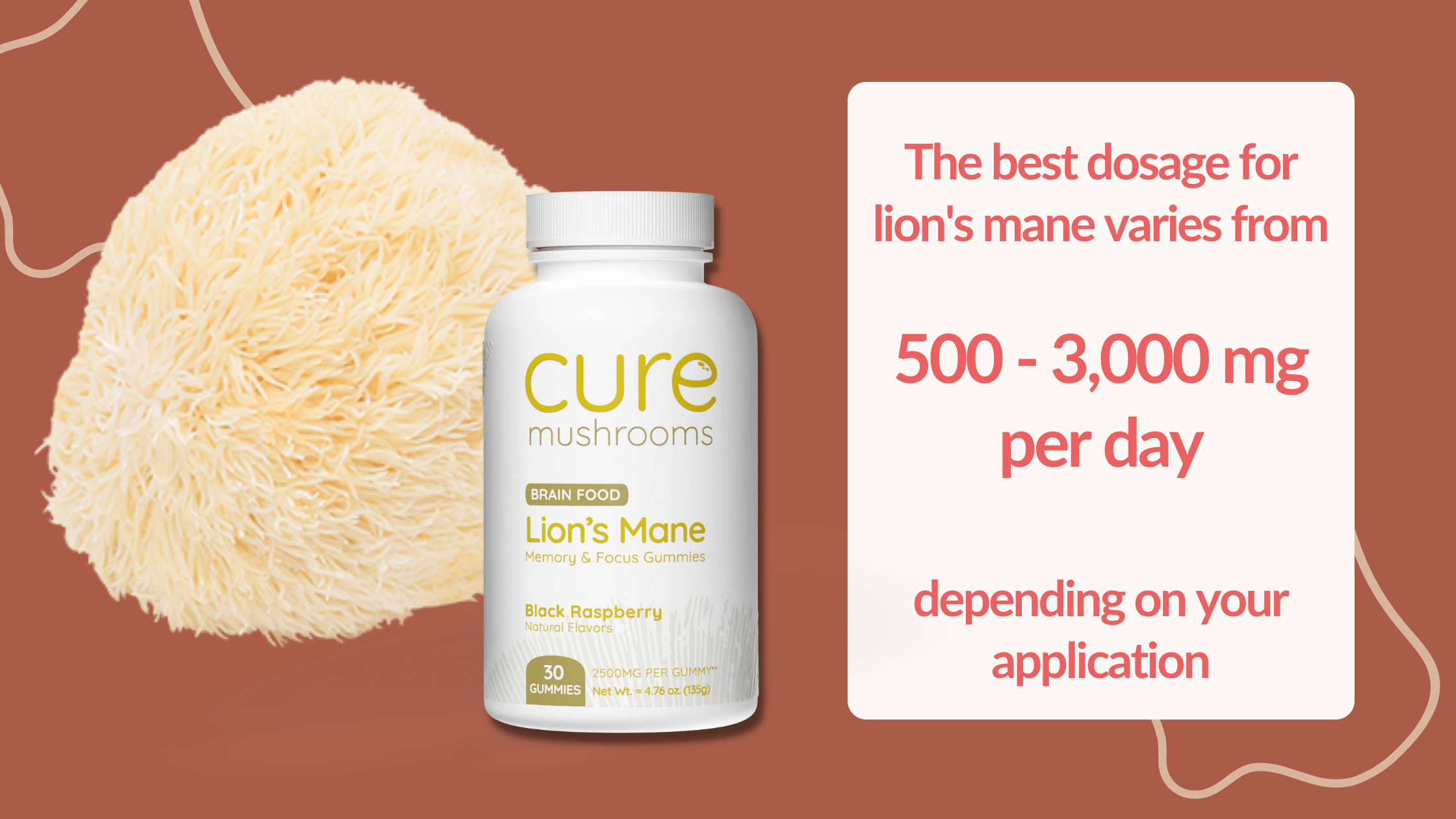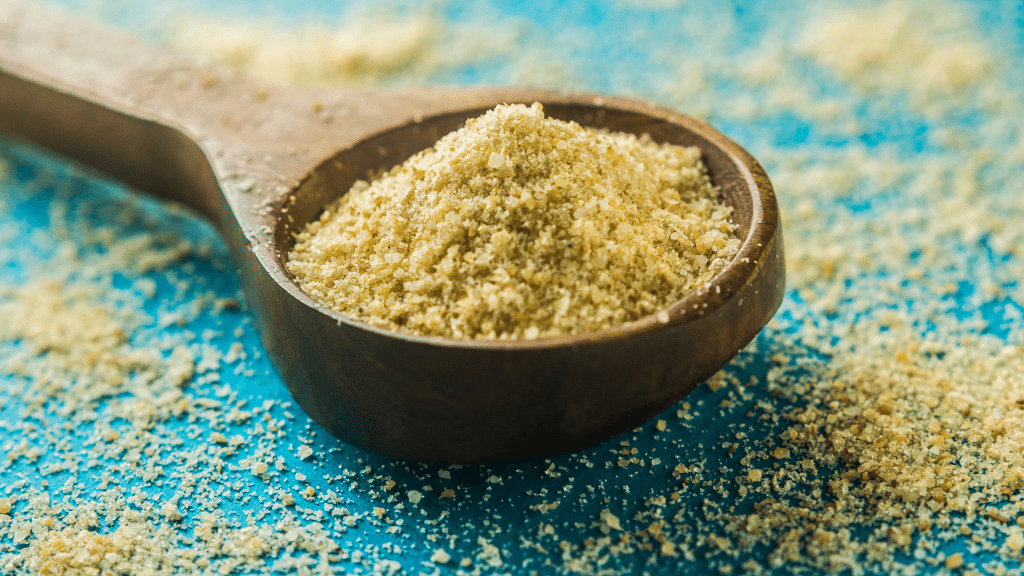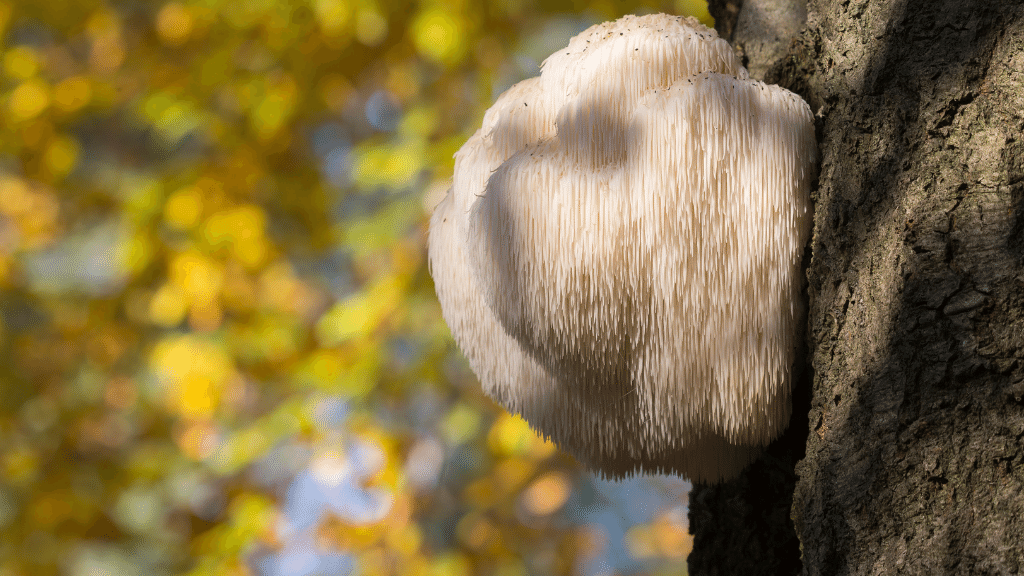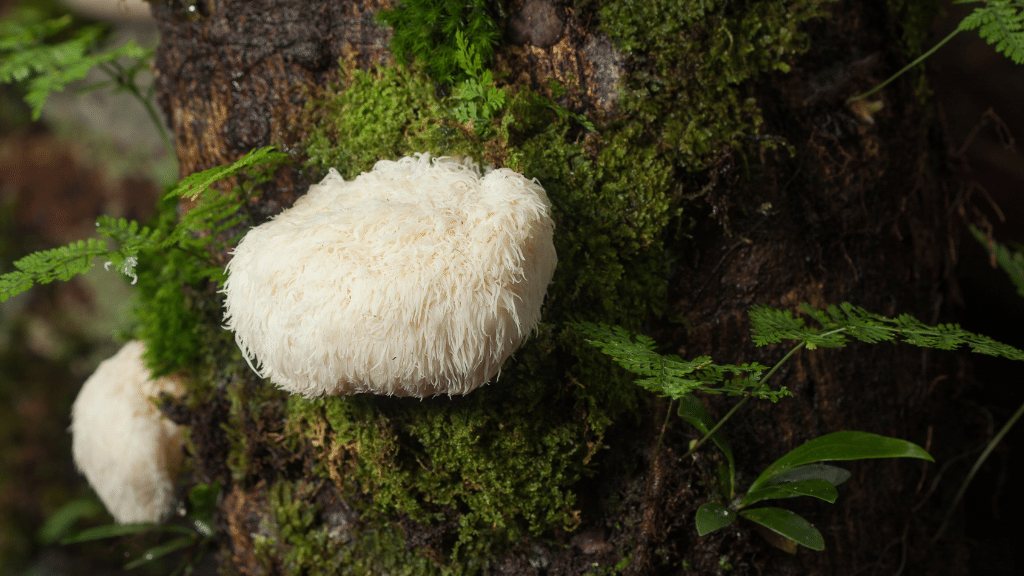So you want to reap the benefits of lion’s mane supplementation. We can’t blame you: it’s packed with the good stuff. As antioxidant powerhouses, lion’s mane mushrooms – also known as Yamabushitake or Hericium erinaceus – contain compounds that several studies show regenerate nerves, ease stomach discomfort and ulcers, increase memory function, regulate mood, and even lower risk of heart disease.
But how much to take? And in what form? All good questions that science is still attempting to answer.
Here’s what we know:
How much lion’s mane should I take?
How much is too much? This depends on several factors, including:
- Your age
- Your overall health
- Your weight
- Your general sensitivity
- The severity of the health issue you’re tackling
As always, the umbrella note: Talk to your doctor. (We don’t wanna have to tell you twice!) Lion’s mane does have a couple of potential interactions, including with blood thinners and with anti-diabetes meds. You can read more about that right here.
Want to find out more about the health benefits of lion's mane? Check out this article.
Lion's mane dosage guide
Below, we've compiled the recommended dosage amount of lion's mane for specific applications. Remember to talk to your doctor before incorporating lion's mane into your supplement routine.
How much lion's mane should I take per day?
We evaluated the dosage amounts used in some studies and have found that the typical recommended daily dosage for lion's mane varies between 500 - 1,000 mg per day.
That dosage may increase or decrease depending on the particular application or benefit you're trying to achieve.

While human research is limited, some studies focused on evaluating the cognitive effects of lion’s mane used the following dosages:
- 750 milligrams (.75 grams) per day for 16 weeks
- 3 grams per day in tablet form for 16 weeks
- 5 grams per day of the fruiting body in soup or broth
- Additional sources recommend 500-600 milligrams 3 times per day for ongoing maintenance
|
Curious about conversions for powder? ¼ teaspoon = 0.7 grams ½ teaspoon = 1.4 grams 1 teaspoon = 2.7 grams See for yourself with this calculator. |
How much lion's mane is too much?
If you're starting a lion's mane supplement, you may be wondering: Can you take too much lion's mane? Based on the information we've gathered, your daily intake of lion's mane shouldn't exceed 5,000 mg of extract per day. While even very high doses of lion's mane is generally considered to be safe, not enough is known about prolonged, very-high doses of this functional mushroom.
Always start with a small dosage of lion's and increase your dosage over time to evaluate its unique effects on your body.
At 5,000 mg a day, you may experience some minor indigestion or GI upset.
The good news: even at high doses, it appears that lion’s mane doesn’t cause any major side effects. In our research, we’ve found just one verified instance of a single person experiencing negative side effects, with an apparent causation between supplementation and respiratory failure.
The patient mentioned in the study, a man in his 60s, recovered after a steroid treatment administered at the hospital.
Lion's mane dosage for memory and cognitive function
The recommended dosage for lion's mane for memory and cognitive function is 1,000 mg per day. You may want to start with a smaller dosage, especially if this is your first time taking functional mushrooms. You may also consider a minor increase in dosage to see whether that improves your symptoms over time.
A limited human study showed improvement in overall cognitive function when participants received 100% fruiting body lion's mane, Hericium erinaceus, orally for 12 weeks. The study states, "We speculate that various chemical compounds, including hericenones, in the mushroom have multiple effects to the brain neural networks and improve cognitive functions."
There is not enough research to speculate whether a single dose or multiple doses is best. Try dividing your daily dose in half - taking half in the morning and half before bed.
Lion's mane dosage for Alzheimer's and dementia
The recommended dosage of lion's mane for Alzheimer's and dementia varies between 500 mg and 2,000 mg - but most reputable sources - settle on 1,000 mg per day.
Lion's mane may offer neuroprotective benefits to those suffering from or who are at risk of developing Alzheimer's and dementia. Promising results from one pilot study have yet to be replicated.
Two small clinical trials showed that even when taking lion's mane at 3g per day for over 16 weeks showed no adverse effects as measured by a complete blood count test.
Lion's mane dosage for aging and inflammation
The recommended dosage for lion's mane for aging and inflammation hasn't been directly studied. But 750 mg - 1,000 mg is generally considered to be safe for these applications.
There is some preclinical evidence using rodent models to showcase the potential benefits of lion's mane for aging. Lion's mane may be able to provide significant protection against oxidative stress and reduce inflammation.
But it's important to note that human research in this area is lacking.
Lion's mane dosage for depression
The recommended daily dose of lion's mane for depression is unknown, but many sources recommend 1,000 - 3,000 mg of lion's mane per day. You should work with your doctor in order to determine the appropriate dosage for your situation.
Research on lion's mane extract for depression is somewhat limited. But one study on mice showed promising results:
"Taken together, erinacine A-enriched HE mycelium could reverse the depressive-like behavior caused by RS and was accompanied by the modulation of monoamine neurotransmitters as well as pro-inflammatory cytokines, and regulation of BDNF pathways. Therefore, erinacine A-enriched HE mycelium could be an attractive agent for the treatment of depressive disorders."
Lion's mane's benefits on cognitive, focus, and clarity may be secondary benefits to those suffering from depression.
Head over to our guide to lion's mane for depression to learn more.
Lion's mane dosage for anxiety
Depression isn't the only potential benefit or taking lion's mane. Many people are interested in lion's mane for their anxiety symptoms as well. The recommended dosage of lion's mane for anxiety is 1,000 - 2,000 mg per day. However, you may find that your anxiety symptoms are eased with slightly less or slightly more, depending on your unique situation.
One Japanese study evaluated the applications of lion's mane for anxiety and depression for menopausal women. The women took lion's mane for four weeks. The study seemed to show an increase in concentration, a decrease in anxiety, and a decrease in irritability in those who received lion's mane versus the placebo group.
Lion's mane dosage for tinnitus
Not much is known about whether lion's mane can help with tinnitus, although there is a lot of anecdotal evidence to suggest that it may help reduce the ringing for some. The recommended dosage of lion's mane for tinnitus is around 1,000 mg per day.

How to dose lion's mane by product type
There are three main ways you can get your lion’s mane mushroom product: in powder form, in capsule or tablet form, or in tincture form. As a precaution (and as with any supplement) take your lion’s mane with some food.
1. Lion’s mane dosage for powder
Take a look at the powdered mushroom offerings out on the market today and you’ll find a number of creative applications. Many of them recommend the same dosage: 1 teaspoon of powder per day, or just over 2 grams.
How to add powdered lion’s mane into your routine:
- Pop it in smoothies
- Add it to tea or coffee
- Mix it into breakfast oats
- Add it to a protein shake
- Melt it into a warm broth
We absolutely love FreshCap's lion's mane powder for not only it's quality and safety standards, but for how easy it is to dose and add to your morning cup of coffee.
2. Lion’s mane dosage for capsules
Many of the products on the market offering lion’s mane (sometimes combined with other mushroom supplements to boost cognition) suggest the following: 1 capsule daily, where a capsule holds about 500 milligrams (.5 g) of the supplement.
How to add capsules into your daily routine:
- Take these supplements in the morning with breakfast, especially if your goal is to boost memory or cognition. Many supplement companies claim that benefits build over time. Reminder: follow package instructions and most importantly look for a certificate of analysis, or COA, that names the supplement’s beta-glucan content.
We put together a list of the top capsule brands here.
Real Mushrooms is a leader in powder and capsules. In fact, Real Mushrooms was one of the first products we ever used ourselves. Not to mention, it's scientifically verified for active compounds making it a great choice for medicinal use.
3. Lion’s mane dosage for tinctures
As you research lion’s mane tincture products, you’ll find varying “suggested uses,” mostly because these tinctures tend to come in dropper bottles. Some companies give specific milliliter measurements, while others simply say to take a couple squeezes of the dropper. A typical dropper in a dropper bottle can hold about 1 ml of tincture, making most of the suggested doses about 1 to 2 ml of lion’s mane tincture per day.
How to add tinctures into your daily routine:
- Simply drop it on the tongue or add it to your breakfast!
Important note for tinctures: There are two ways to extract nutrients from medicinal mushrooms: ethanol extraction and hot water extraction. Ethanol extraction helps isolate non-water soluble molecules like sterols, terpenes, and flavonoids, while the aforementioned mushroom MVP beta-glucans and other water soluble compounds are isolated via hot water. Since lion’s mane packs a punch in both camps, look for tinctures that have gone through a double extraction process, which means both ethanol and hot water extraction was employed. And again: look for that COA to confirm that beta-glucans are present.
We put together a list of the top tincture brands here.
If you're looking for a quality tincture that won't break the bank, look no further than one of our favorite tincture brands, LifeCykel. We use this tincture ourselves and love the results. Plus, their small batch sizing and quality sourcing makes them a no-brainer to try.
4. Lion's mane dosage for tea
Tea is one of the most popular ways to consume lion's mane and has been used in traditional medicine for generations. Lion's mane tea is very easy to make at home!
The proper dosage for lion's mane tea is around 750 mg - 1,000 mg and will vary based on your specific application. Simply mix your lion's mane powder in with your favorite herbal tea. Or measure your dosage as a tincture and add it to your hot brew. Check out our complete guide to making lion's mane tea here.
If you want to add lion's mane to your favorite herbal tea at home, using at tincture is a great choice. We love the folks over at Mushroom Revival. In fact, you may have heard their extremely popular mushroom podcast!
5. Lion's mane dosage for gummies
Gummies are some of the newest supplement types on the market! Gummies on the market will typically have between 250-500mg of lion’s mane extract per serving. Depending on your particular product, you’ll usually take between 1-3 gummies per day.
We've got a complete guide to taking lion's mane gummies if you want to learn more.

Lion's mane dosage tips
So you’re ready to start supplementing. Great! Science says it just might pay off. Here’s what to think about when you’re starting your daily supplementation regimen.
1. Consult your doctor
Again, lion’s mane may interact with anti-diabetes medications and anticoagulants. It may also cause GI upset, and there isn’t one study out there confirming its safety if you’re pregnant. Talk to your doctor to make your regimen specific to you.
2. Start small
If the current animal and small human trials out there say anything, it’s that results take time to show. Start small and pay attention to your body.
3. Experiment with timing
Think of your lion’s mane supplement as a breakfast food. Take it at the same time every day, and take it with your coffee or breakfast (you can even add mushroom coffee into the mix). Lion’s mane stimulates brain function, which nutritionists say can make it harder to settle down for the night.
You may also consider trying some of your dosage in the morning, and the rest in the evening
4. Increase or decrease your dose based on need
Studies in which participants’ brain function was being tested on this supplement listed slightly higher doses than those in which ulcers were being treated. Talk with your doctor about what you’re hoping to gain from supplementing and adjust.
5. Be consistent
Not seeing results fast enough? Give it some time. Many of the studies that showed “significant” improvements in cognitive function took place over the course of 16 weeks or more. Take it slow, and be consistent.
6. Look for trusted products
Trusted products have tons of reviews. They have COAs. They list extraction and grow techniques on their website. They name the amount of beta-glucans present in one dose. They list independent studies to verify their product’s potency. And they definitely don’t claim to be cure-alls. Be skeptical and do your research.
Medicinal mushrooms like lion’s mane have been consumed for centuries, making these fungi some of Mother Nature’s most lasting medicines. If you’re looking for a memory or mood boost or want to ease stomach pain, lion’s mane is in your corner.
Lion's mane dosage FAQs
What are the side effects of lion's mane?
Lion's mane is generally considered safe. The most common side effects are mild stomach upset, especially at higher dosages. Check our our complete guide to lion's mane interactions and side effects here.
Is lion's mane addictive?
No, lion's mane is a functional mushroom and is not addictive!
Is lion's mane psychoactive?
No, lion's mane does not contain psilocybin or psilocin - the two compounds in magic mushrooms. Lion's mane will not get you 'high' or make you 'trip'!
Can I eat lion's mane?
Yes, lion's mane is a rare mushroom in that it has both functional and gourmet benefits! However, if you're looking to take lion's mane for medicinal benefits, your best bet is to use a lion's mane extract supplement. But that shouldn't stop you from getting some fresh lion's mane from your local market! Spice up your kitchen this week and try some of the best lion's mane recipes out there.
Can I give lion's mane to my dog?
In many cases, yes! The dosage of lion's mane for your dog will vary by their weight. Check out our complete guide on how to give lion's mane to your dog.









.png)
